Viktor Axelsen had four straight titles, a 29-match unbeaten streak and loads of momentum going into the year-end final in Bangkok.
Anders Antonsen had won the biggest title of his career coming out of it.
By Bikash Mohapatra. Photos: Badmintonphoto
Coming into the year-end BWF World Tour Finals Viktor Axelsen had everything going for him. The Dane had been in impressive form in early 2020, reaching the final of the Malaysia Masters and defending his title in Spain, before winning his maiden All England Open in an emphatic manner – dropping just one game in five matches.
Thereafter, he suffered an ankle injury, which required surgery. Even as the coronavirus pandemic severely impacted the rest of the 2020 season, the forced break turned out to be a blessing in disguise for the 27-year-old as he used the period to recover, regain fitness and ease back into training.
While the BWF decided upon continuing the remainder of the 2020 season with three tournaments in a bio-secure bubble in Thailand, the Chinese contingent promptly announced its decision to skip the entire schedule. Meanwhile Kento Momota testing positive ahead of his scheduled departure from Tokyo put paid into the hopes of the Japanese contingent. Axelsen was quick to seize the opportunity, winning both the Yonex Thailand Open as well as the Toyota Thailand Open in back-to-back weeks.
The twin wins, coupled with his All England triumph of last year – the final tournament he had taken part in before being sidelined – meant the Dane had become the first player ever to complete a “Super 1000 Slam” – that is winning all the three Super 1000 tournaments in a calendar year – since the designation was created.
Besides, he was on a 25-match winning streak, not having lost on the tour since Anthony Ginting bested him in straight games in the semi-finals of the Indonesia Masters Super 500 last year. The unbeaten streak, coupled with his impressive overall record at the year-end tournament – he reached three successive finals between 2015-17, winning the title on the last two occasions – made Axelsen the firm favourite for a third straight title in Bangkok.
Justifying his status, the Dane breezed through to the final, without dropping a game in four matches, each of his wins more convincing than the previous result. In the process, the 27-year-old extended his unbeaten run to 29 matches – bettering Momota’s streak of 28 match wins between the Japan Open and the French Open in the 2019 season.
His opponent in the final, compatriot Anders Antonsen, had had an entirely different trajectory. Having recovered from COVID-19 infection ahead of the three tournaments in Thailand, there were question marks regarding the 23-year-old’s fitness. That he was comprehensively beaten in the opening round of the first tournament raised further doubts.
Though Antonsen managed to make it to the semi-finals of the second of the Super 1000 tournaments, the manner in which he capitulated against veteran countryman Hans-Kristian Vittinghus – who had to struggle hard to reach that stage – did little to convince critics of his title credentials at the season decider.
Besides, there were multiple instances in Antonsen’s fledgling career where he had struggled in the final having worked hard to get there in the first place. He had failed to make home advantage count in the singles final of the 2017 European Championships. The Dane had also failed to make it count in the two biggest finals of his career, being at the receiving end in both the 2019 Indonesia Open Super 1000 tournament as well as the World Championships in Basel a few weeks later.
Though he did manage to win the Denmark Open Super 750 late last year, it was as much owing to a depleted field as also to the fact that he was facing a player (Rasmus Gemke) who was playing in his first major final. That said, Antonsen had to come from behind to beat his compatriot that day.
Even as Axelsen was steamrolling over his opponents at the BWF World Tour Finals, Antonsen had to work hard, taking three games to oust India’s Kidambi Srikanth before losing in straight games to Wang Tzu Wei of the Chinese Taipei in the group stage. While he did beat Wang in the semi-final, he was the clear underdog against his compatriot in their Sunday encounter.
In fact, former Danish national team coach Steen Pedersen, while doing his commentary duties on BWF TV during Axelsen’s semi-final against Chou Tien Chen, made a pertinent observation: “The only person who can beat Viktor Axelsen (on current form) is Axelsen himself.”
That is precisely what happened in the year-end final in Bangkok.
Axelsen, despite taking the confidence of four straight title triumphs and 29 straight match wins into the final, still lost. Antonsen not only got off the blocks first, winning the opening game 21-16, but also managed to rattle his compatriot otherwise.
While it was Axelsen who began the second game well, after a point it was clear that Antonsen was more interested in getting through to the deciding game as opposed to continuing with the ongoing one. It’s apparent that the 23-year-old was conceding the second game, and conserving his energy for a final burst. Even Fabio Betto, the match umpire, took cognizance of the fact.
“Anders, are you okay? For you must give your best. Okay? Remember it,” the official was seen advising the player. Even though he reassured the umpire from Italy, there were no signs of any change in Antonsen’s body language, and before one could blink, Axelsen had pocketed the game 21-5. While he may have conceded the game, Antonsen had clearly succeeded in frustrating his opponent.
Call it impeccable strategy, ridiculous antics, smart tactics or terrible sportsmanship…fact is, the same worked for Antonsen for a second straight match. The young shuttler had also dropped the second game in his semi-final against Wang, only to comfortably win the final game.
Axelsen had lost his rhythm and even as errors piled on from his racket, Antonsen raced to a healthy lead in the deciding game. Though the former did try to come back into the match, it wasn’t enough. His young opponent had won the decider 21-17 and the coveted title, while also becoming the first player to beat him in over a year.
“In the second game I was saving up energy for the third game because I knew I didn’t have the resources. I had to be very calculated so I decided it would be smarter to go for the third game,” Antonsen said after the final, rather justifying his somewhat unusual strategy.
There’s not an iota of doubt about the fact that Viktor Axelsen’s overall game has improved considerably over the last year or so. But the fact that Antonsen succeeded in making him nervy and hassled indicates that more work needs to be done as regards the mental aspect of his game. Momota’s impressive record against Axelsen owes a lot to the fact the Japanese always manages to unsettle the Dane, forcing him to press the self-destruct button. This defeat is a reminder that the 27-year-old is perhaps still not ready to counter his nemesis.
Axelsen had yet again lost the mind game. He had momentum going into the match. Antonsen had won the biggest title of his career coming out of it.
![BWF World Tour Finals: Anatomy of a Danish Duel Viktor Axelsen had four straight titles, a 29-match unbeaten streak and loads of momentum going into the year-end final in Bangkok. Anders Antonsen had won the biggest title of his […]](http://www.badzine.net/wp-content/uploads/ngg_featured/20210131_1840_WorldTourFinals2020_BPRS0703_rotator.jpg)
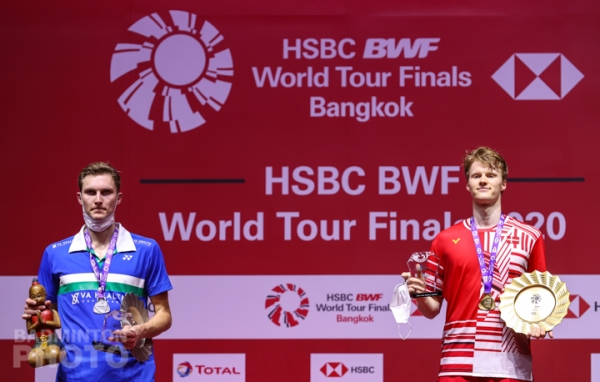
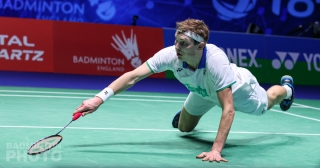
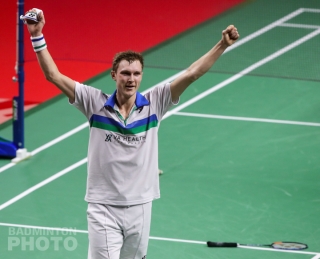
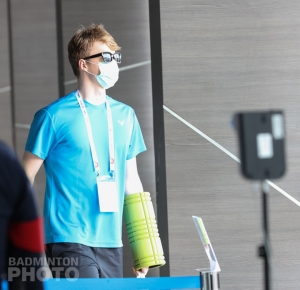
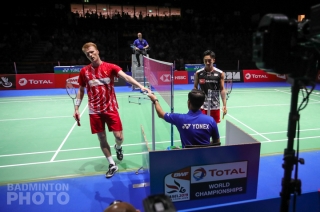
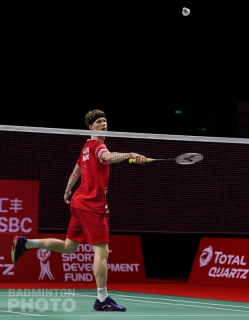
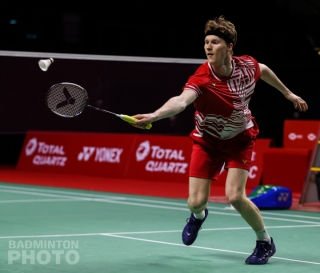
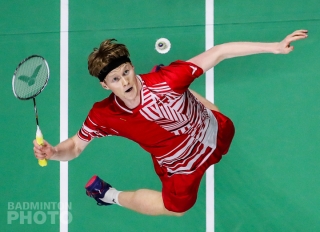
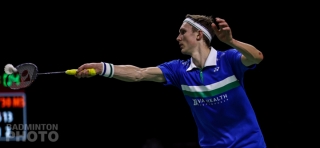
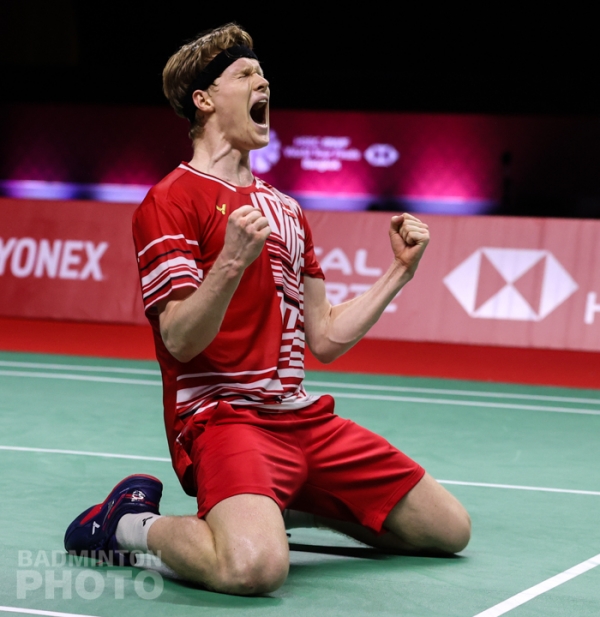

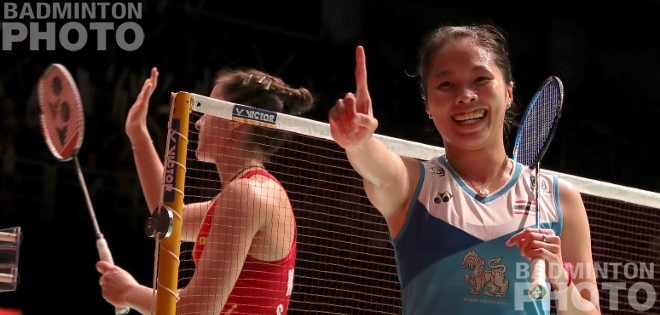
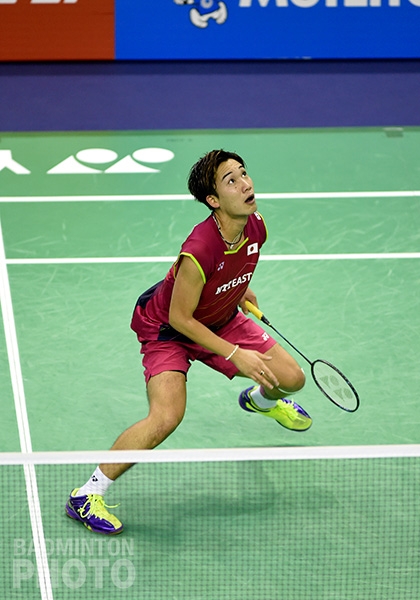
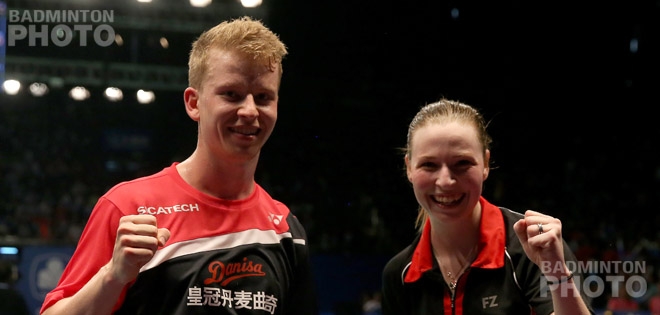

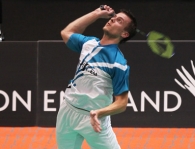
![Ruud Bosch / Koen Ridder [2] - Lester Oey / Justin Teeuwen (21-12 21-11) Ruud Bosch / Koen Ridder [2] - Lester Oey / Justin Teeuwen (21-12 21-11)](http://www.badzine.net/wp-content/gallery/news-spring-2013/thumbs/thumbs_2013-02-03-ge1g2603-dutch-nationals.jpg)
The rule is “Not using one’s best efforts to win a match”. Throwing the 2nd game in this case is the best strategy i.e. best effort. Best effort may include playing with less intensity to save energy. I would probably change “match” to “tournament”. In a group match,if you are already qualified, it can make sense to use less “effort”, even if you loose.